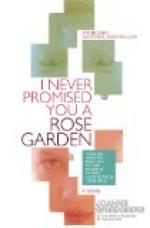In these warm, still nights we take down the slat screens that hang between the hand-hewn chestnut beams of the old barn, and with the open rafters of what was a hay-loft above us, we look out of the door-frame straight up at the stars and sometimes drag our cots out on the wide bank that tops the wall, overlooking the Opal Farm, and sleep wholly under the sky.
These two weeks past we have had the Infant with us at night, clad in a light woollen monkey-suit nighty with feet, her crib being, however, under cover. Her open-eyed wonder has been a new phase of the vacation. Knowing no fear, she has begun to develop a feeling of kinship with all the small animals, not only of the barn but dwellers on Opal Farm as well, and when she discovered a nest of small mice in an old tool-box under the eaves and proposed to take them, in their improvised house, to her very own room at the opposite end, this “room” being a square marked around her bed by small flower-pots, set upside down, I protested, as a matter of course, saying that mice were not things to handle, and besides they would die without their mother.
The Infant, still clutching the box, looked at me in round-eyed wonder: “I had Dinah and the kittens to play with in the nursery, didn’t I, mother?”
“Certainly!”
“And when Ann-stasia brought them up in her ap’n, Dinah walked behind, didn’t she?”
“Yes, I think so!”
“Ver-r-y well, the mouse mother will walk behind too, and I love mice better’n cats, for they have nicer hands; ’sides, mother, don’t you know who mice really and truly are, and why they have to hide away? They are the horses that fairlies drive, and I’m going to have these for the fairlies in my village!” making a sweep of her arm toward the encampment of flower-pots; “if you want fairlies to stay close beside your bed, you must give them horses to drive, ’cause when it gets cold weather cobwebs gets too sharp for them to ride on and there isn’t always fireflies ’n candle worms to show ’em the way,—’n it’s true, ’cause Larry says so!” she added, probably seeing the look of incredulity on my face.
“Larry knows fairlies and they’re really trulies; if you’re bad to them, you’ll see the road and it won’t be there, and so you’ll get into Hen’sy’s bog! Larry did,—and if you make houses for them like mine (pointing to the flower-pots) and give ’em drinks of milk and flower wine, they’ll bring you lots of childrens! They did to Larry, so I’m trying to please ’em wif my houses, so’s to have some to play wif!”
Larry’s harmless folklore (for when he is quite himself, as he is in these days, he has a certain refinement and an endless fund of marvellous legends and stories), birds and little beasts for friends, dolls cut from paper with pansies fastened on for faces, morning-glories for cups in which to give the fairies drink, what could make a more blissful childhood for our little maid? That is the everlasting pity of a city childhood. Creature comforts may be had and human friends, but where is the vista that reaches under the trees and through the long meadow-grass where the red-gold lily bells tinkle, up the brook bed to the great flat mossy rock, beneath which is the door to fairyland, the spotted turtle being warder. Fairyland, the country of eternal youth and possibility!




